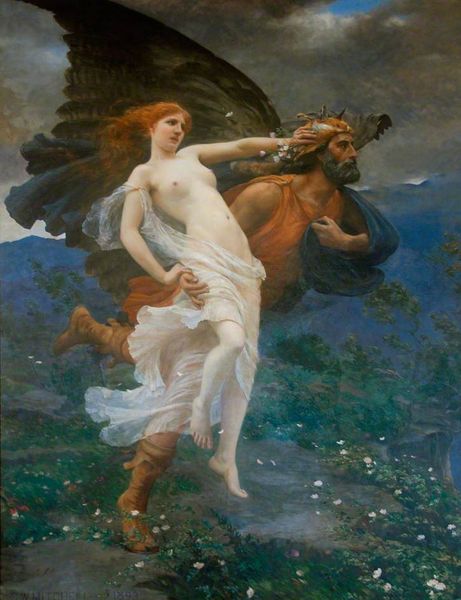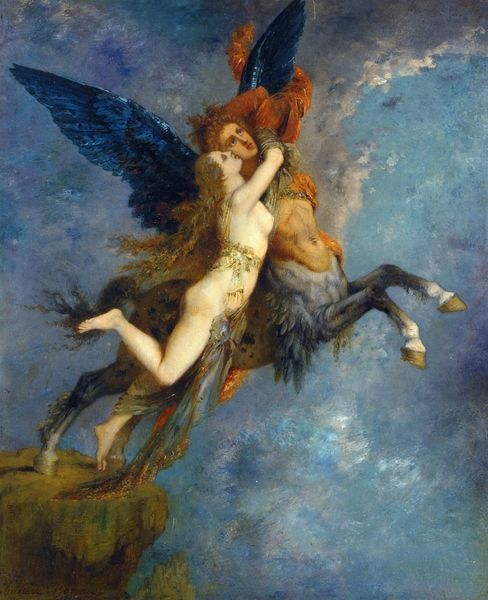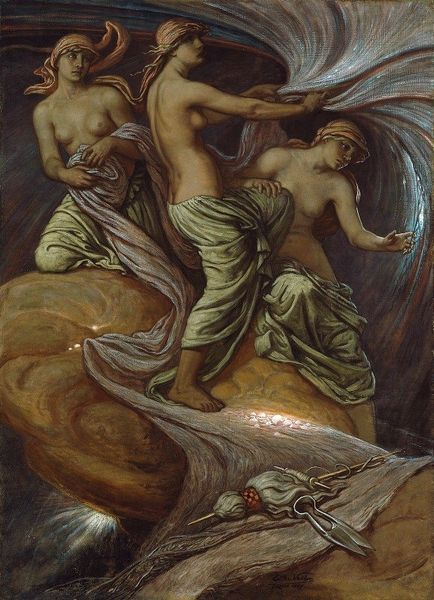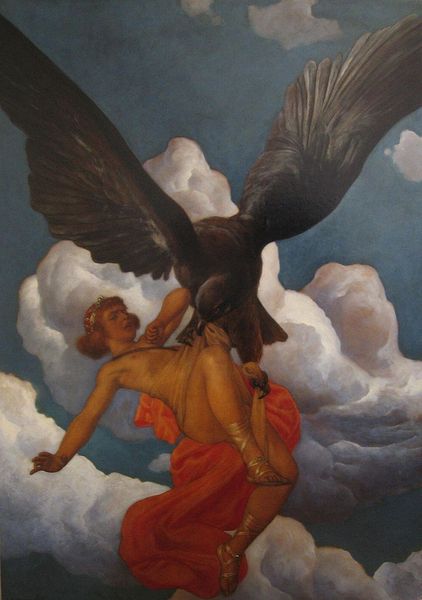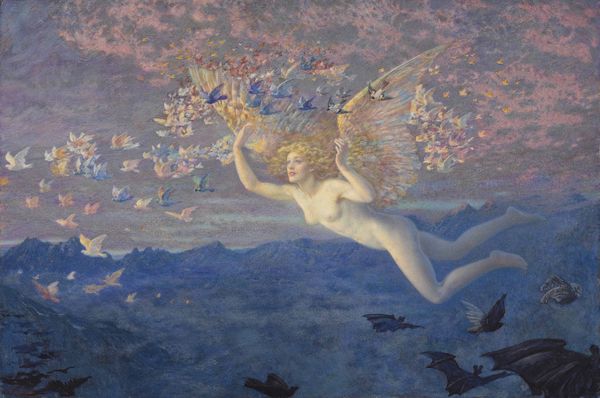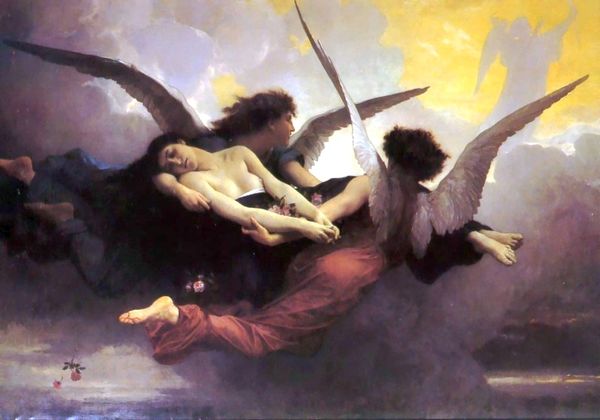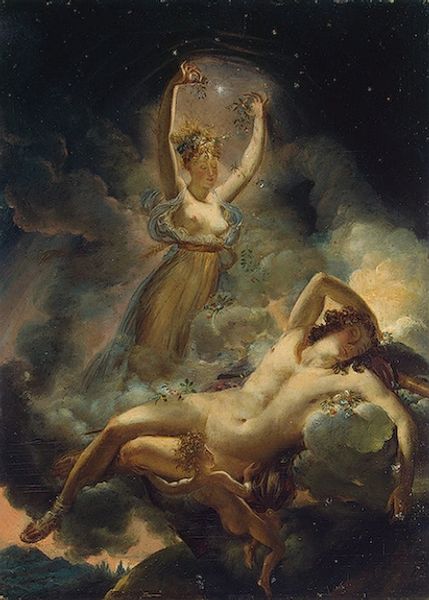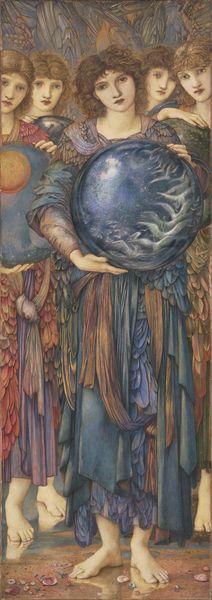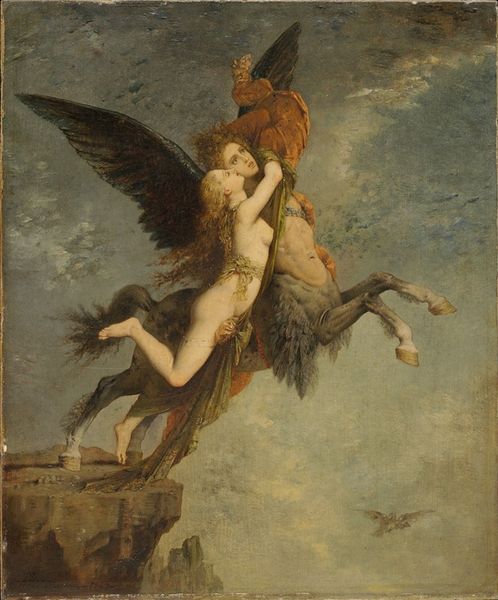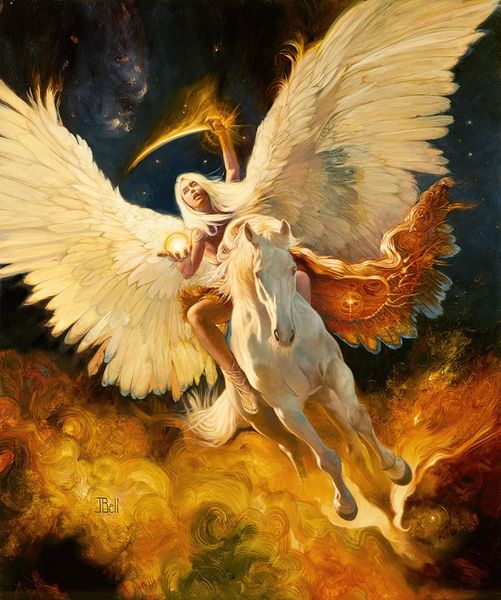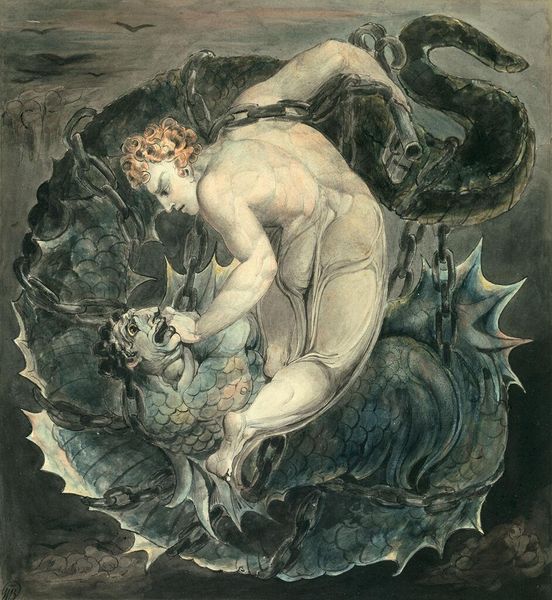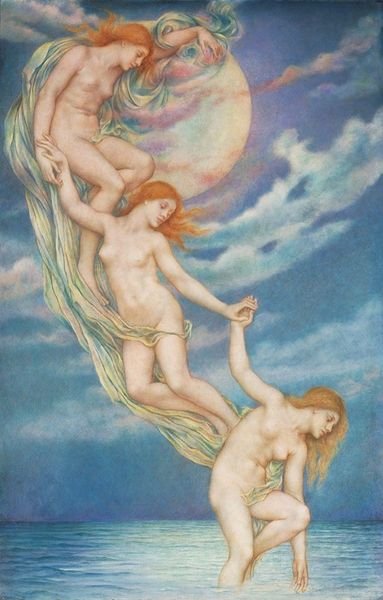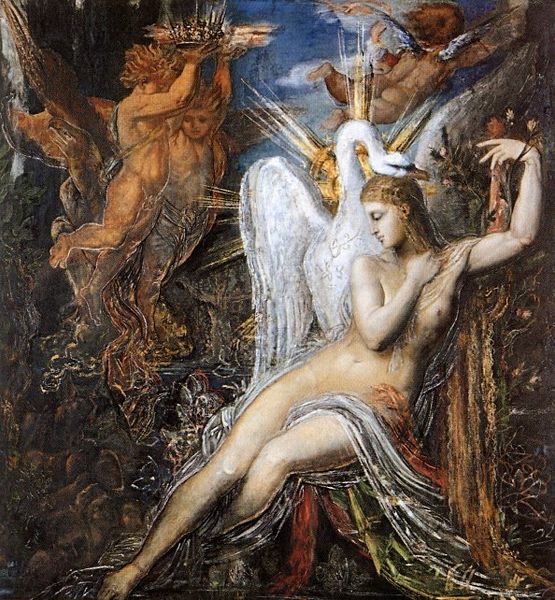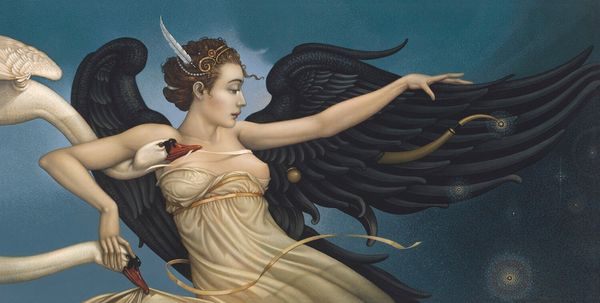
#
sky
#
abstract painting
#
fictional-character
#
possibly oil pastel
#
oil painting
#
fluid art
#
neo expressionist
#
acrylic on canvas
#
water
#
mythology
#
painting painterly
#
animal drawing portrait
#
surrealist
#
expressionist
Copyright: Public domain
Curator: Edward Robert Hughes painted "A Witch" in 1902, seemingly using oils. There’s a dreamy quality to it. Editor: Dreamy and slightly ominous. That intense, dark blue palette dominates, doesn’t it? It’s a night flight of sorts, and you feel the speed of it. The overall image seems both romantic and… a little unsettling. Curator: Let’s consider the context. The Pre-Raphaelite movement, with its emphasis on literary and historical themes, clearly influenced Hughes. You see that in the allegorical depiction, even though "witch" carries so much weight regarding societal treatment of women. How do you see this "witch" functioning within the power dynamics of the era? Editor: I am intrigued by how Hughes portrayed the act of witchery, particularly in this airborne journey high above what appears to be a European city, using fluid brushstrokes which suggests the subject's rejection of societal norms in favor of magical realism. This composition encourages public interpretation that reflects the values of a pre-industrial lifestyle. Do you believe this reflects the traditional beliefs associated with witches? Curator: Interestingly, although the Pre-Raphaelites drew heavily on the past, there’s always a dialogue with contemporary issues. Considering materials—oils allow for layering and luminosity, a key characteristic of Hughes’ style. This affects the social function. This witch is glamorous and ethereal, a complete departure from representations designed to invoke fear. Editor: Good point. Her luminosity practically radiates. But, thinking about audiences back then, viewing the artwork… did they read defiance or fantasy, power or spectacle? That's something that time changes. Perhaps they might have recognized the artist’s perspective of women within the context of mythological imagery. Curator: True. By looking at the reception, we can glean a more robust portrait of the art and societal influence, can’t we? Thank you! Editor: Definitely. Every work tells a more complex story than what is initially on the surface! It was very thought provoking!
Comments
No comments
Be the first to comment and join the conversation on the ultimate creative platform.
